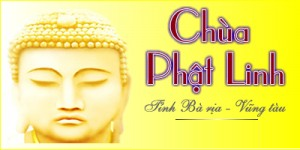PHAT LINH PAGODA
Dear friends near and far, come to Phat Linh Pagoda
Add: 248 Tan Hoa Commune, Phu My Town, Ba Ria - Vung Tau Province
Dear friends near and far, come to Phat Linh Pagoda
Add: 248 Tan Hoa Commune, Phu My Town, Ba Ria - Vung Tau Province
You did not use the site, Click here to remain logged. Timeout: 60 second
